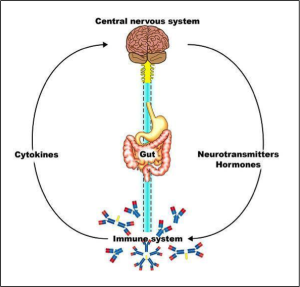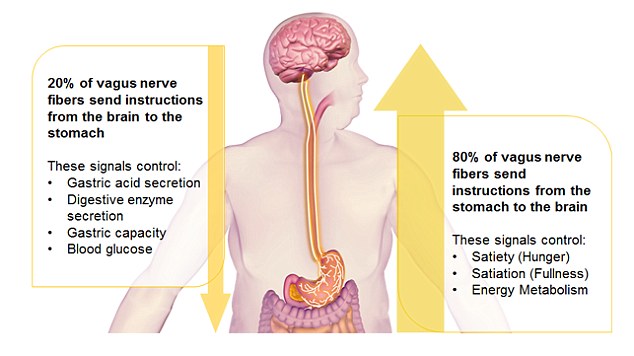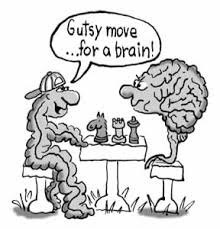We all have a brain although sometimes you would not believe it. It is meant to control how we think, feel, learn and move. The brain and the spinal cord make up the central nervous system. The spinal cord itself is made up of nerves that run down the middle of your back. Messages between your brain and the rest of your body travel through the spinal cord which starts at the base of the brain and goes down to the small of your back. The brain is protected by the bones of the skull and the spinal cord by the bones that make up your backbone. They are both also covered and protected by three layers of membrane called meninges.
There is another nervous system known as the enteric nervous system which is located in your gut and controls your gastrointestinal system from the oesophagus to the point of elimination and can operate independently from the central nervous system although they are in regular communication with each other. In fact, the enteric nervous system is the only other part of the human body that can operate independently of the brain. Its main role is controlling digestion, from swallowing to the release of enzymes that breakdown food to the control of blood flow which is connected to the absorption of nutrients, to elimination. Research has shown that irritation in the gastrointestinal system sends signals to the central nervous system that trigger mood changes in the brain.
Both nervous systems are created from identical tissue during fetal development. One part becomes the central nervous system and the other becomes the enteric nervous system and they are connected to each other by the vagas nerve that runs from your brain stem to your abdomen. This nerve has now been shown to be the primary route used by the gut bacteria to send information to the brain and vice versa, although more information is sent from the gut to the brain than from the brain to the gut.
Although we are constantly reminded that we should think before we act, indicating that we should be rational and reason things out before taking the next step, which often involves making a decision, we often go with our “gut feeling” or “gut instinct” and there are some who will say that they have never been let down by their gut feelings. In addition to the vegas nerve he brain and the gut are connected by a network of neurons, chemicals and hormones that provide information about what is happening in our body. This information highway is known as the “brain-gut axis”.
Just as you have neurons in your brain you also have neurons in your gut including neurons that produce neurotransmitters like serotonin, which is also found in your brain. In fact the greatest concentration of serotonin, a chemical that controls moods such as happiness, aggression and depression, sex, sleeping and feeding is found in your gut. Actually about 90 to 95%. This fact has been forwarded as one of the possible reasons why antidepressants which raise serotonin levels in the brain are ineffective in treating depression, whereas proper dietary changes often help. New therapies, using probiotics (good gut bacteria) to treat a variety of diseases particularly autoimmune diseases such as multiple sclerosis and Alzheimer’s disease are now being developed and it is accepted that the connection between the gut and the brain is vital for maintaining homeostasis.
Studies have shown that babies born by caesarean section have an increased risk of developing allergies, asthma, autism and diabetes. They were also more anxious and depressed. The stated reason for this is that as they were not born naturally they were not exposed to their mother’s vaginal microbes. Apparently, the first 20 days of a baby’s life are crucial in determining the strength or weakness of the baby’s immune system. Those who were not born naturally were at risk of developing ADHD, and learning difficulties. This clearly shows how gut bacteria in the “second brain” affects the activity of the main brain A study in Denmark has shown that the make-up of gut bacteria in diabetics was different from that in non-diabetics and the same applied to lean and obese people.
If gut bacteria can influence mood, learning, memory and cognitive functions by its effect on the brain through the “gut-brain axis” this means that good gut bacteria influences the brain positively and bad bacteria would have a negative effect on the brain. This therefore brings me to the “box” culture that exists these days with regard to fast food. This type of non-nutrient, synthetic stuff that some people eat on a daily basis is not helping the good bacteria in their gut and as a consequence is affecting not only their physical health but their cognitive abilities and encouraging a host of other neuro-degenerative diseases. Little wonder that the World Health Organization has stated that by the year 2030 a new case of Alzheimer’s will be diagnosed every four seconds.
